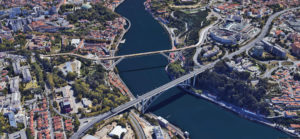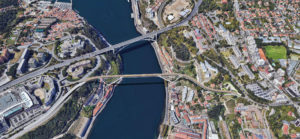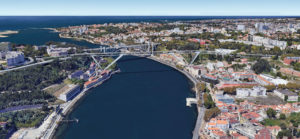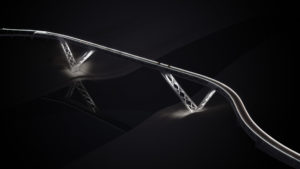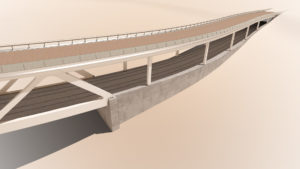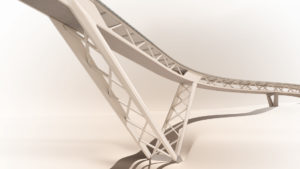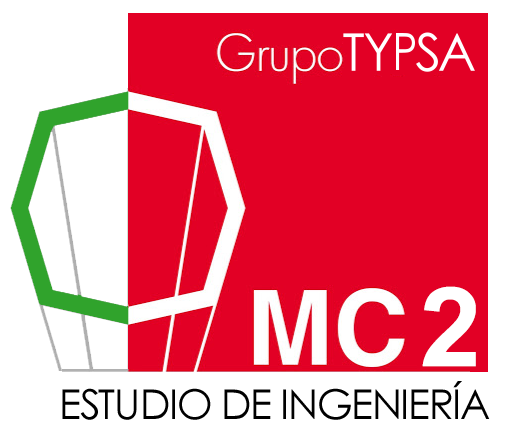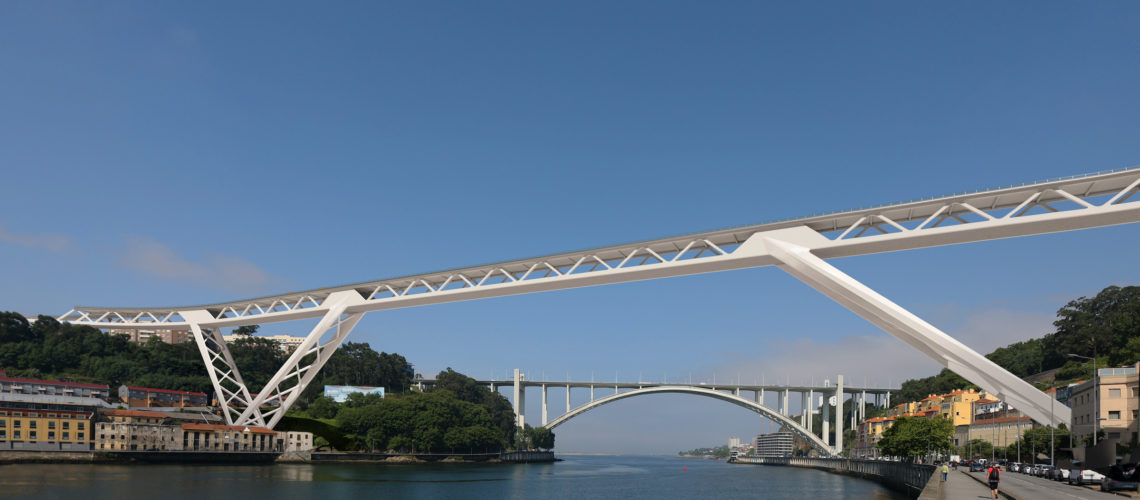Last March, Metro do Porto entity announced an international competition for the conception and elaboration of the design of a new bridge over the Douro River between Porto (Campo Alegre) and Vila Nova de Gaia (Candel).
The purpose of the project consists of the construction of a section of the Metro do Porto between the future stations of Campo Alegre (Porto side) and Arrábida (Vilanova de Gaia side) in which the main work is a unique bridge that crosses the Douro River in the vicinity of the Arrábida bridge. The infrastructure must also incorporate the necessary spaces for pedestrian crossings and cycle paths.
MC2 Estudio de Ingeniería, together with TYPSA and Tecnofisil has presented the proposal shown below. This proposal is a global solution to the problem of crossing over the river, favorably resolving the complex conditions motivated by the interference and necessary articulation of the future Metro line with the road network, and the various existing architectural and heritage elements. On the other hand, the incorporation of a new bridge over the Douro River in Porto constitutes an enormous challenge and an undoubted responsibility due to the marked historical significance that the transcendent link between the city of Porto and its bridges represents. All of them have represented real milestones in the technique of Bridge Engineering, turning the city of Porto into a true museum of Bridge Engineering.
Undoubtedly, it is essential to reflect on the future aesthetic relationship between the new bridge and the Arrábida Bridge. It can be thought that the arrangement of a new arch, the fifth in Porto, to the set is an adequate option and, in fact, it is in theoretical terms. For the necessary main span, the steep geometry of the banks and their favorable geotechnical conditions, the classic arch is a very suitable solution. However, repeating the arch bridge solution a few meters from the Arrábida Bridge would put both bridges in unnecessary competition. The proposed solution aims, in this way, to formally disassociate itself from the classical arch configuration.
Another relevant aspect that must be considered in the selection of the structural typology of the bridge is the harmonization of the metro, pedestrian and cycle path circulations. The adoption of a single deck for all the uses required in the bridge would lead to consider it, simply as a work of passage and communication isolated from the rest of the urban network, and in our opinion, of very little use, since it is a relatively long route that could preferably be covered precisely by metro. Faced with the above situation, the possibility arises of having two separate and exclusive platforms: one for the subway and the other for pedestrians and cyclists. This separation of the platforms is very attractive due to several factors and presents undeniable advantages.
On this occasion, our proposal has not been selected; but the simple fact of having the opportunity to propose this bridge for the city of Porto is already a great satisfaction.
Congratulations to the three finalist solutions!
